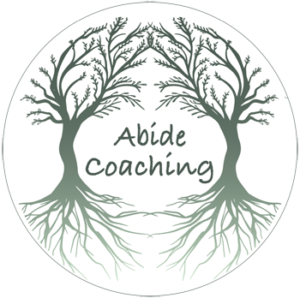What is Executive Function Coaching?
ICF defines coaching as partnering with clients in a thought-provoking and creative process that inspires them to maximize their personal, professional or academic potential, which is particularly important in today’s uncertain and complex environment.
Executive Function or ADHD coaching is a specialized type of life coaching that uses specific techniques designed for working with the unique brain wiring of individuals with attention-deficit hyperactivity disorder. Coaches work with clients to help them better manage time, organize, set goals and complete projects. In addition to helping clients understand the impact ADHD or other executive function deficits issues have had on their lives, coaches can help clients develop “workaround” strategies to deal with specific challenges and determine and use individual strengths. Coaches also help clients get a better grasp of what reasonable expectations are for them as individuals.

What makes a good coach?
Of course you want to make sure you are getting what you are paying for and unfortunately, anyone can call herself a coach. You should do your homework. They don’t necessarily need to be ICF certified but they should have been trained with a program that is ICF accredited. If it is for your teen, they should also have experience with teens and not just their own kids. Being a parent is different than working with teens. You should be able to meet with them before committing to anything. I do free consultation because I feel it is worth the investment of my time and yours to find the right match. A good rapport between teen and coach is vital for the coaching to be successful.
What is the coach’s role?
Coaches honor the client as the expert in his or her life and believe every client is creative, resourceful and whole. Standing on this foundation, the coach’s responsibility is to:
- Establish a strong partnership with the teen.
- Act according to a strict ethical standard and conduct.
- Creates a Respectful, Collaborative Partnership
- Co-create a clear agreement
- Be passionate and present
- Create a space for exploration
- Actively listens through an ADHD lens
- Asks insightful, thought-provoking questions
- Makes insightful connection
- Facilitates learning and new awareness
- Supports the client in examining possibilities and creating powerful actions to move forward
- Allows space for the teen to explore choices
- Invites action around those choses
- Encourages responsibility
- Holds the teen accountable
How does coaching benefit teens?
Having this partnership, allows the teen to have an adult who is trained to understand ADHD or other executive function deficits. No one wants people to assume that they are being lazy or trying to get out of hard work, but often this is the case for some teens who are struggling. Being believed in and encouraged to try out your own path has a power all its own. Teens share the development of this coaching relationship which allows them who have a position they don’t hold in most of other relationships in their life. Often teens are not in charge of most of their day; there are teachers, school admin, coaches for sports teams, private music teachers, employers and others whose expectations they are trying to live up to. That is not the case with EF coaches. The only goal of a coach is to support the teen’s goals for himself. I always tell my clients that I only have a carrot and no stick. What’s important is that teens become more aware of how their ADHD or executive functions deficits are affecting their decisions and behavior so that they can make a plan to alter them to form habits or systems that will support them in reaching their goals with the coach. The accountability piece also can take some stress away from other relationships since teens are now accountable to the coach and to themselves for doing tasks like homework or chores. Coaches can also reframe negative self beliefs and provide accurate information about ADHD.
Coaching can be done one on one or in groups.
The focus for coaches is the present and future. I focus on an awareness, action, learning model.
What can’t coaches do?
We aren’t doctors or therapist. We cannot diagnose anyone with anything. We also do not dive into the past to figure out why or how something is affecting you. Coaches deal with the present and the future.
We cannot provide a magic pill. Working with us will not suddenly make a student turn in all their homework and get all As. We are looking for a progress, not perfection.
We do not work with clients only once. Coaching is a process that is based on a partnership.
This process helps teen (all clients) dramatically improve their outlook on school, work, and life while improving their skills and unlocking their potential.
